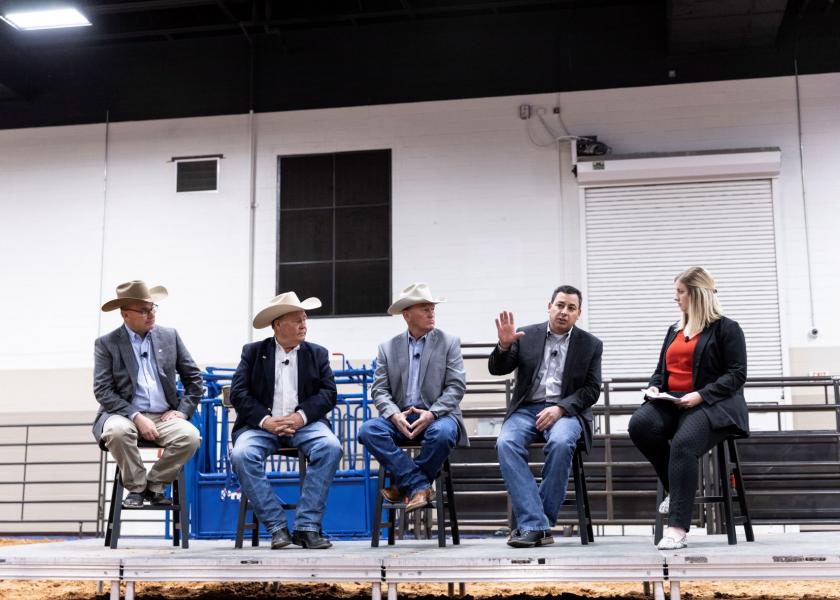Maximizing the Use of Genetic Data Will Pay Dividends

The Angus University: Genetics workshop sponsored by Zoetis at the 2021 National Angus Convention and Trade Show served as an educational session to inform breeders about the value of collecting genetic data and ways to use it in decision making.
The panel included moderator, Kelli Retallick-Riley, president of Angus Genetics Inc. (AGI), and four panelists – Justin Sexten, vice president of strategy and product development for Performance Livestock Analytics; Jim Moore of Moore Cattle Company, a commercial Angus operation; James Henderson of Bradley 3 Ranch, an Angus seedstock operation; Troy Marshall, director of commercial industry relations for the American Angus Association.
Understanding and valuing genetic data can present as a daunting task to seedstock and commercial producers alike. Retallick-Riley asked panelists to describe how they use genetic data to navigate breeding decisions and market cattle to the next industry segment.
“Being able to have some prediction of what those cattle are really worth and being able to get that kind of value out of them and they perform accordingly makes it better for all of us,” Henderson said. “We can sit down with an individual customer and say, ‘Here’s where you are today, here’s where you want to be and here’s what it’s going to take to do that.’”
Sometimes the primary struggle with data stems from the collection process. Sexten emphasized how modern technology provides breeders with the tools to efficiently collect data, document it and convey the information to each sector of the supply chain.
“From a technology perspective, we think about it as how do I take the notes you take on a cow that’s locked up in text messages, snapshots on your phone and notes on a piece of paper that’s thrown up on the dash and convey that up and down the supply chain in a way that the association can make predictions from it,” Sexten said. “I think technology provides us the ability to convey information across all of these segments. So that’s how we think about it is how can we convey information, not just gather more and more data.”
Marshall encouraged the use of programs like AngusLinkSM which provides commercial producers the opportunity to maximize data collection efforts and more importantly, maximize profits.
“Those buyers up and down the chain need information, they need market flexibility, market access, and they’re looking to mitigate their risk and these programs give them that,” Marshall said. As a result, AngusLink has helped to capture more premiums. “This last year, the people enrolled in the AngusLink program had an average return of about $84 over the market. Over the last three years, we’ve returned almost $12.5 million in premiums to commercial producers. I think this information flow is just going to continue to grow.”
In addition to the AngusLink program, the GeneMax Advantage test allows commercial cattlemen to receive genetic information on unregistered females to make strategic decisions when selecting replacements.
“I think one of the underutilized things about [GeneMax Advantage] is if you know what you’re replacing, you also know what bulls to select, so you get a double advantage,” Moore said. “I think that GeneMax Advantage just gives you the opportunity to differentiate yourself in the marketplace and objectively describe the cattle so you can capture the value they deserve.”
The role genetic data plays in any operation will likely continuously increase over time. Henderson said if you haven’t already, the time to start using genetic data to enhance your decision making is now.
“I think if you're not looking at genetic information today in your herd, whether you’re a commercial or a seedstock operation, you’re probably falling behind very quickly,” Henderson said. “It’s time to get into the education process and figure out where you are from a genetic standpoint.”







